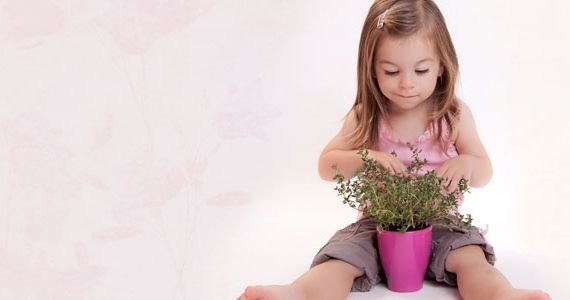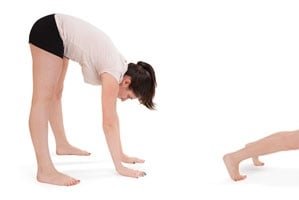Children are particularly sensitive to the chemicals present in personal care items. Minimizing their exposure to these chemicals can be achieved by opting for organic skincare products.
Children are particularly sensitive to the chemicals present in personal care items. Minimizing their exposure to these chemicals can be achieved by opting for organic skincare products.
Wrinkles, hyper-pigmentation, and dull skin—just because children don’t share the same skincare issues as adults, doesn’t mean they are free from their own skin problems. The following suggestions will help maintain your child’s skin in optimal condition, naturally.
Why Choose Organic?
Parents, take note! Selecting organic products for our children may be even more critical than for ourselves. This is largely due to the fact that children are in a constant state of growth and development, making them more vulnerable to environmental factors. In addition, children have a higher surface area relative to their body weight, which results in increased exposure to the ingredients in the products they use.
According to a survey by the Environmental Working Group (EWG), “Every day, children are exposed to an average of 27 personal care product ingredients that have not been found safe for developing bodies.” Such findings highlight the importance of choosing organic products that are free from artificial components, chemicals, pesticides, and herbicides—a straightforward, positive action parents can take.
Your Bundle of Joy
Gentle Care
Infants and toddlers have delicate, often dry skin that benefits from nourishing natural products. Opt for a mild cleanser (like castile soap) for baths and a gentle moisturizer to keep their skin hydrated. Soothing ingredients such as oatmeal and calendula are ideal, while fragranced products should be avoided as they can be irritating.
Preventing Diaper Rash
To prevent or address diaper rash, select wipes free from alcohol and fragrances, and apply an unscented barrier ointment after each diaper change.
The EWG suggests steering clear of the following components in wipes and diaper creams:
- 2-bromo-2-nitropropane-1,3-diol (bronopol)
- DMDM hydantoin
- BHA
- boric acid
- sodium borate
- Talcum powder, derived from talc, has long been used in baby care. However, it can be harmful to the eyes, skin, and lungs, and there are concerns regarding its potential asbestos contamination. It’s advisable to avoid baby powder entirely.
Choose Organic Shampoo
Some mainstream baby shampoos have been found to include ingredients that release formaldehyde. Opt for a natural shampoo that has a good rating on EWG’s Skin Deep database.
Big Kids
Knotty Hair
If combing hair has become a constant struggle, consider a natural conditioner or detangler to simplify the process and eliminate knots. In-shower conditioners can be effective, while detangling sprays are useful on wet or dry hair. Look for natural varieties containing glycerin and coconut oil for tangle-taming.
Fun in the Bath
Brightly colored, heavily perfumed bubble baths may be appealing, but chemicals in conventional products can lead to rashes and issues such as urinary tract infections or yeast infections. Natural bath washes devoid of irritating chemicals can still make bath time enjoyable.
Bumps and Bruises
While serious injuries require professional care, natural remedies and home care can assist in healing minor cuts and scrapes. Stock your natural first aid kit with these remedies:
- honey, a natural antiseptic
- calendula for skin healing
- lavender essential oil as an antiseptic
- aloe, known to promote skin cell growth
Tweens and Teens
Natural Deodorants
With puberty comes new skin care challenges, including body odor. Sweating plays an essential role in regulating body temperature, and contrary to common belief, it’s the combination of sweat and skin bacteria that produces odor, not the sweat itself.
Antiperspirants work by blocking sweat pores to reduce perspiration, whereas deodorants allow natural sweating while neutralizing odors. Some studies suggest a potential connection between antiperspirants and breast cancer, though evidence remains inconclusive.
Regardless, to minimize chemical exposure, natural deodorants are the best choice. Encourage regular bathing to further combat bacteria and body odor.
Natural deodorants are available in various forms (choose based on your child’s preference):
- classic stick solid deodorants
- liquid deodorants with roll-on applicators
- solid deodorants or stones/crystals, which need to be moistened and applied to the skin
- powder deodorants, often made from cornstarch
Time for Clear Skin
Teenage skin is frequently associated with acne. While completely avoiding breakouts may be unrealistic, establishing healthy habits (like refraining from scrubbing or squeezing pimples) and using natural products can help minimize the frequency and severity of acne.
Recent research suggests that thyme may be a natural acne treatment that is both more effective and less irritating than prescription creams. Other promising options include calendula and myrrh tinctures.
Skin Care Resources
Organization Website What they do
EWG’s Skin Deep Cosmetics Database ewg.org/skindeep rates thousands of skin care products, and uncovers the safest options
Healthy Child, Healthy World healthychild.org “empowers parents to protect children from harmful chemicals”
Environmental Defence environmentaldefence.ca provides a pocket shopping guide for personal care products on their website
The Campaign for Safe Cosmetics safecosmetics.org helps teens (and adults) make healthier cosmetic choices
Always consult a healthcare professional for any specific health issues your child may have, including skin care concerns.
Makeup
It’s common for teenage girls to become interested in makeup. Once you decide your daughter is ready to try makeup, take time to explain the significance of selecting natural products. Then go to the store together to make selections.
According to the David Suzuki Foundation, the following top chemicals should be avoided in cosmetics:
- BHA and BHT
- coal tar dyes
- DEA-related ingredients
- dibutyl phthalate
- formaldehyde-releasing preservatives
- parabens
- parfum/fragrance
- PEG compounds
- petrolatum
- siloxanes
- sodium laureth sulfate
- triclosan
Fortunately, there are natural makeup brands that offer safe alternatives for virtually every type of product, from mascara to lip gloss.
Finding safe and effective products for children is easy once you know where to look. Visit your local natural health store and consult with their skincare or beauty specialist for more information.
A Healthy Diet for a Healthy Complexion
Although chocolate was once wrongly accused of causing acne, our diet does indeed influence skin health. A nutritious diet for healthy skin aligns closely with an overall healthy diet.
Promote healthy skin by encouraging your child to consume plenty of:
- fruits and vegetables
- whole grains
- vegetarian proteins (such as legumes, nuts, and eggs) and lean animal protein
- dairy products like yogurt
If your child is a picky eater and may lack essential nutrients, you might consider discussing a children’s multivitamin with the staff at your local health food store.






